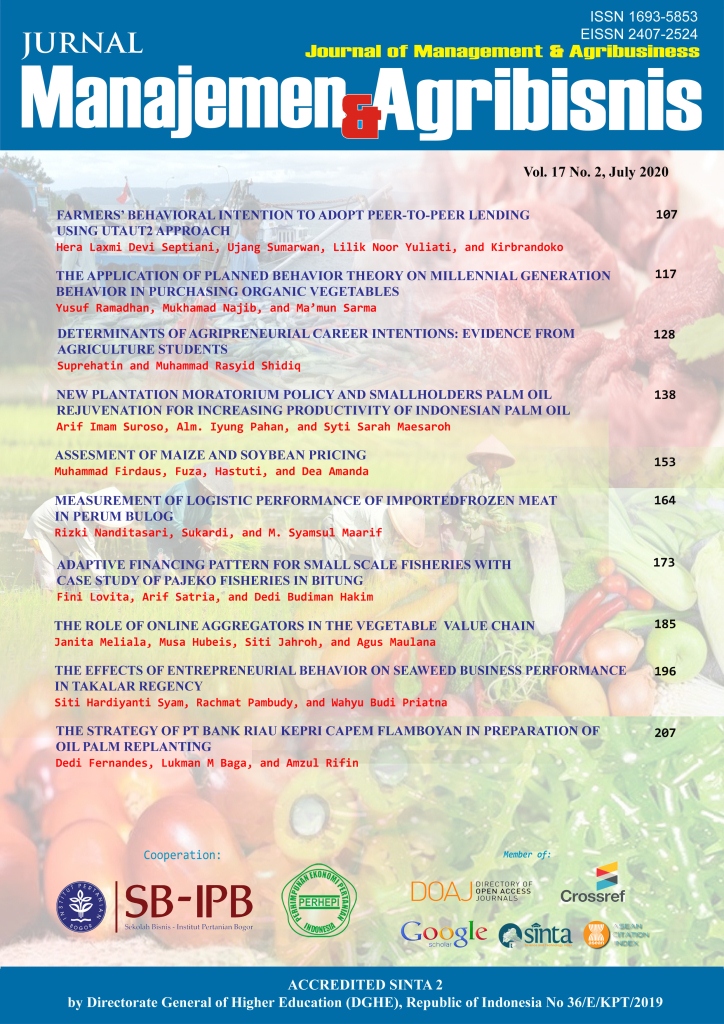The Application of Planned Behavior Theory on Millennial Generation Behavior in Purchasing Organic Vegetables
Abstract
Organic vegetables are vegetables that are cultivated without any synthetic chemicals. Organic vegetables production volume is increasing every year. There are expectations of increasing the annual production of organic food in order to provide safe and healthy food. Vegetables are one of the basic needs that are consumed daily in Indonesia. This research aimed to analyze the buying behavior of organic vegetables of millennials in Bandung city. This research tried to expand the Theory of Planned Behavior (TPB) by adding one variable, namely health consciousness, in the research framework. The methods used in this research were Confirmatory Factor Analysis (CFA) and Structural Equation Modeling (SEM) with the AMOS approach. The number of samples used were was 208 respondents. Millennial Generation respondents consisted of people aged 21 to 40 years old whoi were selected with a sampling technique of quota sampling. Data collection was conducted by distributing online questionnaires using Google Forms via WhatsApp and Instagram. The results showed that the purchase intention variable had the most dominant influence toward on buying behavior. While health consciousness, which was an addition of the Theory of Planned Behavior modification, had the most dominant effect toward perceived behavioral control.
Keywords: theory of planned behavior, health consciousness, organic vegetables, millennial generation, structural equation modeling (SEM)
Authors
Authors who publish with this journal agree to the following terms:
- Authors retain copyright and grant the journal right of first publication with the work simultaneously licensed under a Creative Commons Attribution License that allows others to share the work with an acknowledgement of the work's authorship and initial publication in this journal.
- Authors are able to enter into separate, additional contractual arrangements for the non-exclusive distribution of the journal's published version of the work (e.g., post it to an institutional repository or publish it in a book), with an acknowledgement of its initial publication in this journal.
- Authors are permitted and encouraged to post their work online (e.g., in institutional repositories or on their website) prior to and during the submission process, as it can lead to productive exchanges, as well as earlier and greater citation of published work (See The Effect of Open Access).

